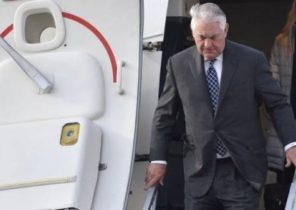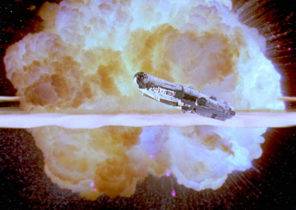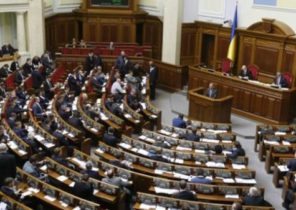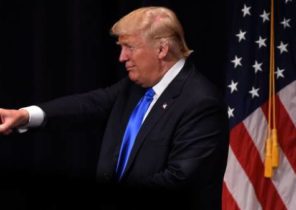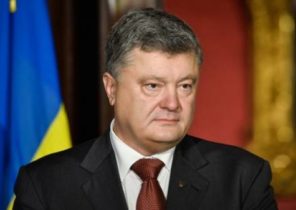
The decline was long and painful. However, after two years of recession, the Russian economy seems to be restored. Of GDP in 2015 and 2016 decreased in total by 4%, but this year the optimists are counting again on a 2% increase.
From the former high-flying when the Russian economy grew annually by 7%, a huge Empire is still far. However, the financial markets have to calculate the possibility of a new rise of Russia. Only one side has not had any support economic development: the Kremlin itself.
Before the presidential election in 2018 any significant reforms, which are urgently needed by the country, are virtually eliminated. Therefore, the end of recession may be delayed until 2019 or 2020, as follows from the forecasts of the Russian Ministry of economy.
Therefore, discussions on Russian measures to strengthen the economy remain purely academic. Analysis of the current state and what needs to be done, again, as again became clear in these days in Moscow the Gaidar economic forum.
Distrust of government institutions
If you do not take into account other detailed problems, it is the most powerful inhibiting factor is that 85% of citizens and investors do not trust the state institutions, said former Finance Minister Alexei Kudrin, who is the head of the Kremlin Vladimir Putin still keeps to himself as a counselor and a Joker for a possible change of government. In such circumstances, “it is difficult to reform.”
The greater the role of external factors, which in recent months has had a positive impact. This is, firstly, the increase in the price of oil, which Russia contributed to their active role in making decisions about the international decline of oil production.
And, secondly, it is a positive effect of the outcome of the US election, which has caused euphoria in Russia, because with the arrival of the new President of the United States Donald trump is expected to defuse tensions in bilateral relations and the thaw in Europe. And these expectations after the first phone conversation between trump and Putin in the end of the week only intensified.
Investors Russia is once again under control
Exchange as a barometer of sentiment has long reacted to it. Gradually relaxing after his strongest in several years, falling in January 2016, it is in November and December showed increased growth and noted recently at the Micex (MICEX — the leading index of the Moscow interbank currency exchange approx. transl.) even an unusually high figure.
In the first week of January was made a slight adjustment, then last Friday again rise and exceed the highest mark of the previous year.
Investors Russia is once again under control. Expectations from the 2017 high. And this, it should be noted, in light of the fact that the forecasts for this year a further increase in interest rates in the US may primarily cause the outflow of capital from newly industrialized countries and lead to massive economic distortions. In this regard, the major rating agencies still have adjusted some positive forecasts for these countries downward.
Now investors began to withdraw from other newly industrialized countries, as shown by the January survey of Bank of America/Merrill Lynch among 215 investment managers. The only exception to the new trend is Russia. Not surprising that the majority of investment banks in their forecasts for 2017 called Russia the most attractive among the new industrialized countries.
Investors have to calculate the end of sanctions
For the benefit of Russia not only a positive assessment of the market and high dividend income, excluding tax, but Russia is also benefiting from the recovery in commodity markets and on possible tensions in relations with the West after the inauguration of trump, says Andrei Lobanov, managing investments in Joint-stock company “REGION Esset Menedzhment”.
It is absolutely not clear, how it will look closer to trump. And even a phone conversation at the end of the week between the two heads of state a little clarity in this situation. But imagination still run wild. So, investment Bank Morgan Stanley the other day in one analysis, has lost the script of the weakening of Western sanctions against Russia.
The Bank, however, has limited the impact of this on GDP growth is 0.5%, but decided that capital outflows will continue to decline, which will strengthen the ruble. In addition under Central Bank inflation of 4% in 2017 will be achieved, so the key rate, which they last left 10%, until the end of 2018, will gradually decrease to 7.25% or 7.50%.
HSBC Bank in its January report on new industrial countries did not dare to such a hypothetical scenario, the lifting of sanctions, but optimistic, because he believes that Putin on the basis of its high rating in Russia until elections in 2018, there is no need to conduct populist policies. But HSBC does not exclude unexpected turns in tax policy and geopolitical risks.
The biggest beneficiary may be the banking sector
HSBC remains optimistic about the Russian state loans. As for the ruble, which last year added a fifth of the cost, HSBC expects in its report for the first half of its further strengthening, while the currencies of most other newly industrialized countries is likely to depreciate. Bank UBS sees in 2017 chance with ruble-denominated interest-bearing securities to achieve a total return of 26%.
In case of cancellation or easing of sanctions investment Bank Morgan Stanley sees as a beneficiary of primarily the banking sector, primarily such institutions as Sberbank and “Tinkoff Bank” (TCS). Both the Bank in 2016, enjoyed the highest demand on the Russian stock exchange.
Namely Sberbank, ranked first in the industry in Russia is hard as a rock. He mostly is in the hands of the state, and sets the tone with almost half of all savings in the country and with the third part of all loans.
Again the demand for raw stock
In such important for Russia’s commodity sector, according to Morgan Stanley, from the easing of sanctions, the big winner would be the first in the oil industry, the concern “Rosneft” and the second in the country gas company “NOVATEK”, as they again would get easier access to Western technology production.
For example, Deutsche Bank has already raised the first company Rosneft (“purchase”), and evaluating course objective to 430 rubles. As an indirect benefit from rapprochement with the United States and economic recovery Bank Morgan Stanley highlights the Russian search machine Yandex, which is currently at dotiruetsja of 23.60 USD. Its exchange rate goal increased to 31 dollars.
“Sberbank”, “Rosneft”, “NOVATEK” and the largest trading network “the Magnet” — that their shares recently were the most popular. As quickly at the end of the recession will be able to grow the consumption on this account from the experts there is no consensus. But the first signs of growth are already visible.
Retail trade has opened more than 2,000 branches
Stronger than all has shown itself in recent time, leading a group of Russian retail companies X5, which in the fourth quarter after many years again took over the leading role in the sector of “Magnet”. Group X5 in the past year opened no less 2167 new stores and increased turnover by 27.5%. And this is when real income in the country for the second consecutive year decline. Not coincidentally, the X5 is increasingly becoming a favorite on the stock exchange.
It seems that investors are willing to use any market weakness, says Vyacheslav Smolyaninov from the Finance company BCS Prime. But before the overheating, he said, is still far away. By the way, BCS recommends that the Prime businesses in the real estate sector, and also advises to sell companies for the production of fertilizers and in the field of telecommunications.
